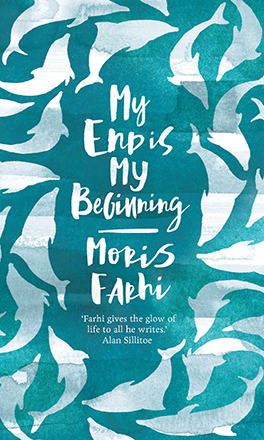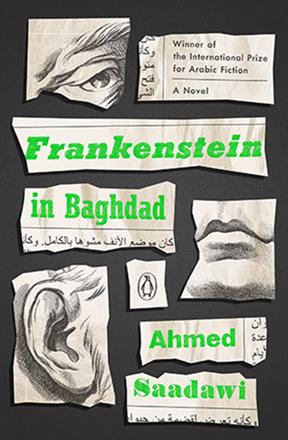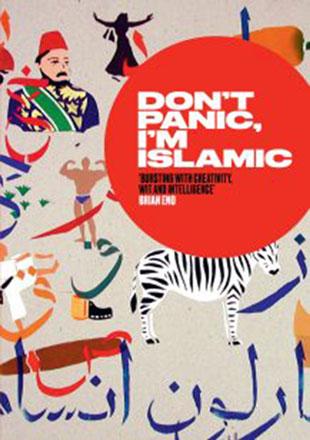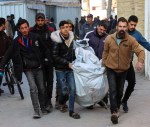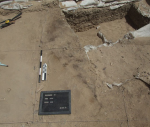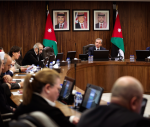You are here
The poetic policeman
By Sally Bland - Sep 14,2014 - Last updated at Sep 14,2014
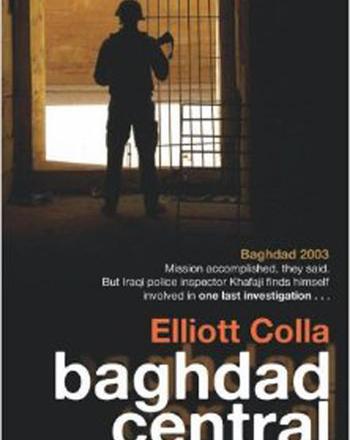
Baghdad Central
Elliott Colla
London: Bitter Lemon Press, 2014
Pp. 332
Elliott Cola teaches Arabic literature at Georgetown University, and has translated several important contemporary Arabic novels. This time around, he has written his own fictional story, but it seems so real. Set in the aftermath of the 2003 invasion of Iraq, “Baghdad Central” covers many things which one knows about: A city in ruins, devastated infrastructure, unravelling social fabric, the occupiers’ ignorance of the country and callousness towards its people and culture, torture at Abu Ghraib, etc. But it is something else to read about these things from the point-of-view of Iraqi citizens themselves. This is an insider’s view that Colla produces with much authenticity.
Violence, intrigue, suspicion and double-dealing are the hallmarks of the world turned upside down which ex-police officer Muhsin Khafaji must navigate. Colla made a daring choice when he created Khafaji as his protagonist. For most Westerns, even those opposed to the invasion of Iraq, the idea of a Baathist policeman conjures up only negative images, but Khafaji will change their minds. “Poetry was everything in the house where he grew up.” (p. 41)
He can reel off hundreds of lines from Nazik Al Malaika and other poets — an interest he shared with his Palestinian wife until her untimely death from cancer due to lack of proper medicine during the sanctions regime. It is not Colla’s intent to present Khafaji as a top intellectual, but simply to indicate the level of public culture in pre-war Iraq. “To educated Iraqis, none of the poets in Khafaji’s mind would be unknown,” he writes in the acknowledgements. (p. 331)
Khafaji’s internal musings and flashbacks reveal that it is poetry and memories of happier times before Suheir’s death — plus chain smoking and whiskey, which enable him to endure the harsh realities of occupied Iraq. “The present is never thick enough.” (p. 45)
Now he has only his daughter, Mrouj, and her health is rapidly deteriorating due to a serious kidney condition, also left untreated during the time of sanctions. Khafaji is a pragmatist. After being arrested and tortured by US forces, he eventually agrees to work with them to rebuild the Iraqi police force in return for their providing Mrouj with treatment. From then on, the ambiguity pervading the novel only gets thicker.
“Baghdad Central” opens like a detective story. Khafaji’s brother-in-law asks him to try to find his daughter who has disappeared. When Khafaji’s American boss assigns him to trace missing interpreters, he thinks this will help him search for his niece, but what he finds is a tangled web of deceit that ends in horror. (It is noteworthy that he also encounters Iraqis who are putting their lives on the line to resist occupation and reclaim their country.)
Though billed as a crime story, “Baghdad Central” is much more because the crimes in question are not individual acts but the outgrowth of war and occupation. An interview Colla gave Henry Peck of “Guernica” magazine, August 15, 2014, suggests that the book can be classified as a roman noir, a genre where the protagonist is not necessarily a detective but can be a suspect, a perpetrator or the victim of a corrupt system. Circumstances push Khafaji into all these roles at different times, while the novel as a whole graphically illustrates the breakdown of moral clarity in such times.
Khafaji is the quiet type; his responses at times seem slow, but his mind is always working. His reactions to the situations he confronts are priceless, tinged with bitter irony. He is, by turn, bewildered, disgusted and amused by the changes he witnesses, from the presidential palace’s transformation into the Green Zone, to US soldiers having given Baghdad’s streets American names, presumably because they are too lazy or unwilling to learn the Arabic ones. While sometimes horrified by the US killing machine, he is also struck by the naïveté of those who imagine rebuilding the Iraqi police force simply by locating former policemen.
The atmosphere of ambiguity and insecurity is augmented by short, first-person, anonymous narratives interspersed in the story that convey the terror of post-war Baghdad: unexplained disappearances, families driven from their homes for having the “wrong” religious or ethnic identity, random and targeted killing. By the end of the novel, things are not any clearer than they were at the start. After all, the occupation is ongoing. But Khafaji has taught us a lot about human perseverance, loyalty, making tough choices (or having no choice at all), about loving Baghdad even at its worst and, oddly enough, how deep familiarity with poetry can bolster human logic.
“Baghdad Central” is available at Books@Cafe.
Related Articles
My End Is My BeginningMoris FarhiLondon: Saqi Books, 2020Pp.
Frankenstein in BaghdadAhmed SaadawiTranslated by Jonathan WrightNew York: Penguin Books, 2018Pp.
Don’t Panic, I’m IslamicEdited by Lynn GaspardLondon: Saqi Books, 2017Pp.


